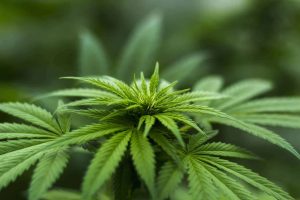Working in a drug and alcohol rehab clinic, I am often asked for my opinion on whether or not this new development is going to be a ‘good thing’ for people’s health. I have to admit, I have a number of concerns about cannabis now being legally available for medicinal purposes.
No one could fail to have been moved by the plight of the two boys with severe epilepsy who seemed to benefit from the use of cannabis oil but were denied it. I acknowledge that cannabis oil seemed to have helped them. Many other people think they would benefit from taking cannabis. Some of these might be desperately in need. Others might prefer to have a prescription for cannabis to ease their discomfort. Currently, there are strict guidelines for prescribing the drug. Cannabis prescriptions are currently legal for children with severe epilepsy. Adults with nausea and vomiting from chemotherapy can also take it, as can adults who experience muscle stiffness from multiple sclerosis. The prescriptions are likely to be for pills, capsules and oils.
My concern is this:
Some people prescribed this drug will experience a ‘high’ and could become addicted to cannabis. As with other mood altering medications -there is a possibility that those prescribed cannabis for valid health reasons will not take it in the prescribed dosage and will develop a habit. Ultimately, this will cause more pain and suffering. In the end, cannabis will cause more problems.
Another concern is that we are opening the door to cannabis prescriptions. More people may want to take it. It could only be effective in relieving pain in around 1 in 28 cases. The majority of people using cannabis, do so recreationally. I have concerns that cannabis prescribed for legitimate purposes will get into the wrong hands and will inevitably be traded on the streets.

Prescription Cannabis
Cannabis is not a harmless vegetable matter, whatever some people might argue. Yes, prescription cannabis will be more controlled in terms of its THC content than the cannabis illegally circulated today. Prescription codeine taken as co-codamol, tramadol, oramorph etc are also controlled in its opiate content. This does not stop many thousands of people becoming addicted to the pills, causing untold misery.
A recent report from Canada
Recently, Cannabis has been made legal for recreational purposes. Cannabis can affect cognitive abilities such as learning, attention and decision making and academic performance at school. I feel this suggests that cannabis is more harmful to the adolescent brain than alcohol.
To me, this is stating the obvious. At the Haynes Clinic, we have seen many young people who started smoking cannabis at a young age before their brains had finished developing. These young adults are emotionally stunted; their brains are not able to function cognitively as they should. These people often experience psychosis and paranoia, have a strong attachment to conspiracy theories and live their lives in fear. Cannabis may affect their sleeping patterns and they may experience mood swings.
Cannabis being more accepted and in wider circulation can only increase these problems. I fear the legalisation of cannabis today for medicinal purposes will not be a positive step for everyone.

Need help with cannabis addiction? We offer consultations and free assessments here at the Haynes Clinic to help you decide if further actions need to be taken.
Author: Dr Magda Czerwinska
